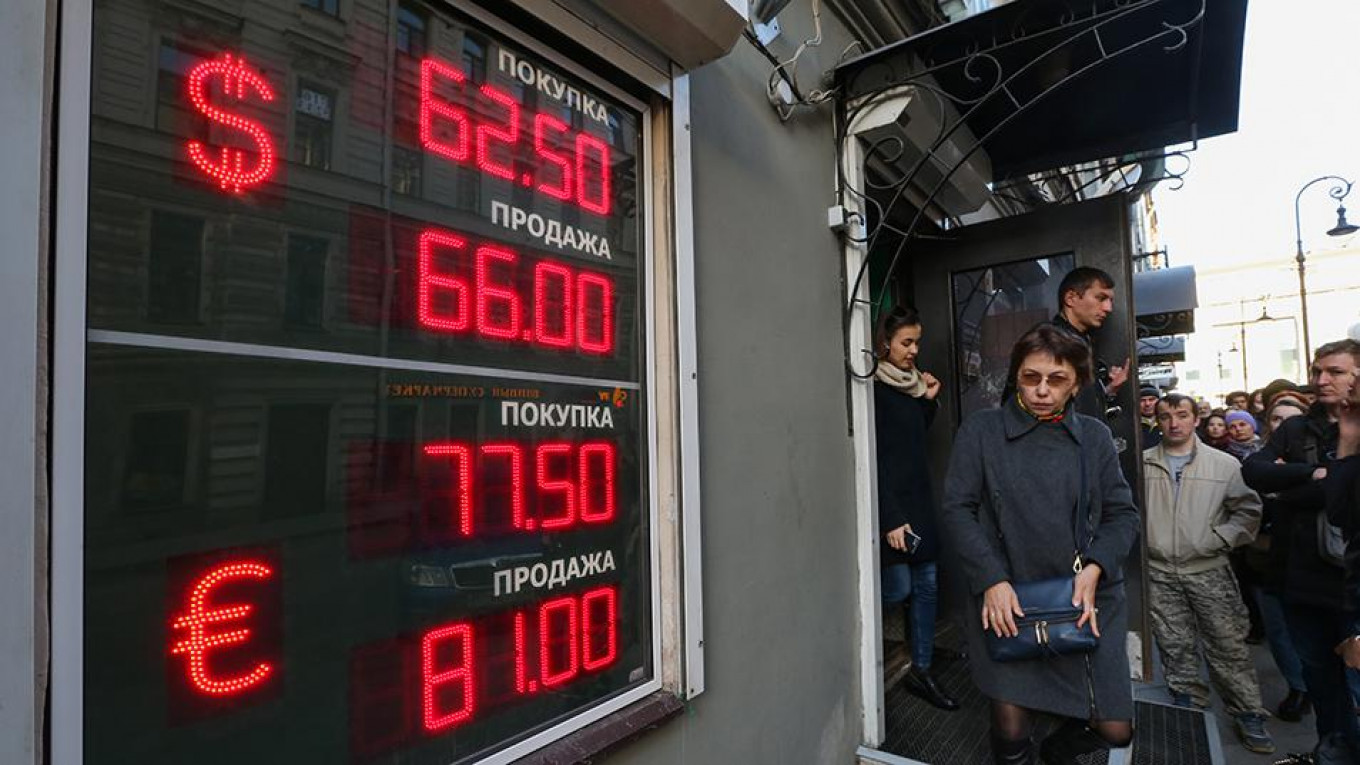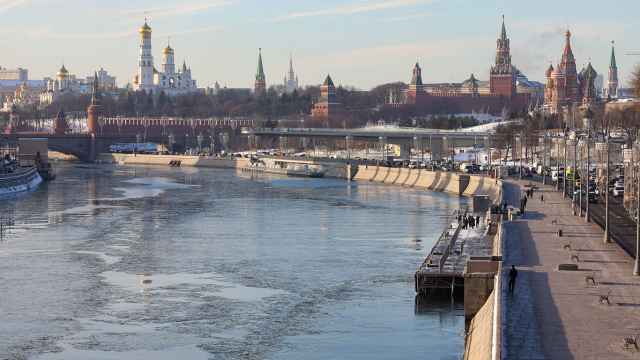The Russian ruble and shares in some of Russia's biggest companies slid lower on Monday, dragged down by the threat of new U.S. sanctions and lower oil prices.
Volatility on the Russian market has soared since Washington imposed fresh sanctions against Moscow on April 6, targeting major Russian companies and some of the country's most prominent businessmen.
Dangers of a direct military confrontation between Russia and the United States eased over the weekend after Western missiles fired at Syria over a suspected poison gas attack steered clear of any Russian troops on the ground.
But Washington said on Sunday it would impose further sanctions against Russia on Monday over Moscow's support for Syrian President Bashar al-Assad.
At 10:40 on Monday morning, the ruble was 0.36 percent weaker against the dollar at 62.27 and had lost 0.37 percent to trade at 76.80 versus the euro.
Russia's dollar-denominated RTS index was down 0.57 percent to 1,098.26 points, while the ruble-based MOEX Russian index was 0.18 percent lower at 2,171.28 points.
Shares in aluminium giant Rusal, which was placed on the April 6 U.S. sanctions list, were down more than 5 percent on the Moscow Exchange after falling 30 percent in Hong Kong.
"Fears of a direct military conflict between the U.S. and Russia have been sidelined, allowing markets to breathe easier, but only somewhat," BCS analysts said in a note.
"Sentiment, still, will be tempered awaiting the Kremlin's response to the U.S.-led strike in Syria, to U.S. sanctions of last week and potential new sanctions."
Lower prices for oil, Russia's main export, also weighed on Russian assets.
Benchmark Brent crude oil was down 1.58 percent at $71.43 a barrel as a rise in U.S. drilling for new production weighed on prices.
A Message from The Moscow Times:
Dear readers,
We are facing unprecedented challenges. Russia's Prosecutor General's Office has designated The Moscow Times as an "undesirable" organization, criminalizing our work and putting our staff at risk of prosecution. This follows our earlier unjust labeling as a "foreign agent."
These actions are direct attempts to silence independent journalism in Russia. The authorities claim our work "discredits the decisions of the Russian leadership." We see things differently: we strive to provide accurate, unbiased reporting on Russia.
We, the journalists of The Moscow Times, refuse to be silenced. But to continue our work, we need your help.
Your support, no matter how small, makes a world of difference. If you can, please support us monthly starting from just $2. It's quick to set up, and every contribution makes a significant impact.
By supporting The Moscow Times, you're defending open, independent journalism in the face of repression. Thank you for standing with us.
Remind me later.






